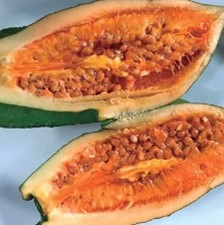On the occasion of the world NGO day which is celebrated on the 27th of February of every year, and is recognized by communities, international leaders, city mayors, businesses, and many organizations around the world, we would like to share with you the story of Arboretum Cholul AC -Arboretum (in Latin a place planted with trees) and Cholul (name of the town in Yucatan)-, an organization that has the objective of conserving endangered fruit trees that formed an important part of the gastronomy of the Mayan culture.
Aquí, Ángel Guillermo Pech Blanco, estudiante del Tecnológico Nacional de México campus Conkal, del cuarto semestre de Ingeniería en Agronomía, asiste y participa con la comunidad en el rescate, limpieza y riego de las plantas que se encuentran ahí.
Here, Ángel Guillermo Pech Blanco, a fourth-semester student of Agronomy Engineering at the Tecnológico Nacional de México, campus Conkal, assists and participates with the community in rescuing, cleaning and watering the plants that are there.
“This is of great significance for our students since important goals related to the Transforming Higher Education project are attained: identify areas of collaboration where the community and institutions can work together to solve problems for their benefit. We achieved this with our students being agents of change and the key elements being linked in the projects”. – Jorge Gamboa, facilitator of the Transforming Higher Education project at the Technological Institute of Conkal
Ángel Guillermo Pech Blanco.Alumno del cuarto
semestre de Ingeniería en Agronomía

Some of the species that are being preserved are the following:
| Common name | Scientific name | Main use | Photo |
| Ciricote | Cordia dodecandra | Timber and medicinal (a cough syrup is prepared from the wood) |  |
| Canisté | Pouteria campechiana | Fruit tree |  |
| Bonete | Jacaratia mexicana | Papain source. The resin is used to remove warts on the skin. It’s also used as a live fence. |  |
| Pepino kat | Parmentiera aculeata | Edible fruit. It’s also used as a live fence. |  |
| Zapote negro | Diospyros digyna | Timber. Medicinal. Antibiotic qualities, soothe sore throat and insomnia |  |
These and other native species are in danger of extinction due to the clearing of forests for livestock, or they are underutilized because they were once commercially important but today their presence in the markets has decreased, or or they have ceased to be appreciated in the local markets or they are no longer known by the families in the Yucatan Peninsula.
“The care of flora and fauna is important worldwide, especially at these times where climate change and human beings have had repercussions on the loss of species of medical and nutritional importance. Also, the planting of non-native plant species (from other regions or countries), have caused native plants of importance for food, medicine, culture, etc.to be displaced, forgotten, and are in danger of extinction”, Gamboa closes.
According to Biocultural Heritage, less than half of the pre-Hispanic fruit trees of American origin are cultivated. Additionally, there are a variety of fruit species with high nutritional potential that are wasted and unknown by most people, especially in the cities, since they are only planted in the countryside. Therefore, it is necessary to promote conservation strategies to maintain the biological, cultural and food diversity of Yucatan since the preservation of germplasm as mentioned by

Hernández and León (1992) will be based on the development of markets and technologies for agronomic management and preparation for consumption.
Thanks to the work of Ángel Pech Blanco, together with the staff of the garden -led by its founder, Dr. Jhon Enherenber Enriquez and who appears in the photo- and all the work with the community as part of the implementation of the five elements of success, organizations like these have the possibility of saving species that are extremely important to the legacies of an entire nation, helping them last for generations to come.

